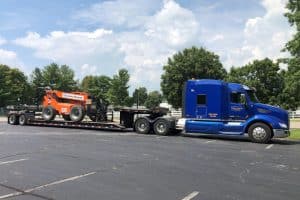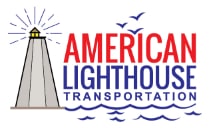
Defining Kentucky’s Truck Weight Limits
The concept of truck weight limits revolves around controlling the maximum weight a vehicle can legally carry on public roads. These restrictions are designed to prevent damage to road surfaces, bridges, and underpasses, while also reducing the risk of accidents due to overloading. In Kentucky, as in other states, these regulations are pivotal in maintaining the integrity of the transportation infrastructure and facilitating the smooth flow of goods across the state and beyond its borders.
Comprehensive Analysis of Weight Limits
Kentucky’s truck weight regulations are comprehensive, covering various aspects of trucking operations. These rules vary depending on the type of highways and the configuration of the truck’s axles. Understanding these nuances is essential for truckers and trucking companies operating within the state.
Weight Limits on Major Highways
On Kentucky’s interstates and designated highways, the weight limits are clearly defined. A single axle is limited to 20,000 pounds, while tandem axles (two axles) have a limit of 34,000 pounds. Tridem axles (three axles) are capped at 48,000 pounds. Importantly, the total gross vehicle weight, which includes the vehicle and its load, should not exceed 80,000 pounds.
Variations Across Different Highway Classes
For other state-maintained highways, Kentucky categorizes roads as Class [A], [AA], and [AAA], each with its own weight limit. Class [A] highways have a limit of 44,000 pounds, Class [AA] can accommodate up to 62,000 pounds, and Class [AAA] highways are designed to support vehicles weighing up to 80,000 pounds. This tiered system reflects the varying capacities of roads to handle heavy vehicles and is an essential consideration for route planning in logistics operations.
Regulations for Combination Trucks and Semitrailers
Kentucky’s truck weight regulations also specify limits for combination trucks and semitrailers, which are common in long-haul transportation. These vehicles are subject to different weight limits based on their axle configurations. For instance, a five-axle combination unit is restricted to a maximum gross weight of 96,000 pounds. The limits increase with the number of axles – six-axle units can go up to 120,000 pounds, and seven-axle units can carry up to 160,000 pounds. These higher limits accommodate the additional weight distribution provided by more axles, reducing the pressure on individual axles and the road surface.
Navigating the Permit Process
Obtaining the necessary permits is crucial for trucking operations, especially when transporting loads that exceed standard weight limits. In Kentucky, permits are required for overweight vehicles to ensure that the proposed routes can handle the extra load. This process involves a detailed assessment of the roads and bridges along the route, safeguarding the infrastructure and ensuring the safety of the journey. Trucking companies must be vigilant in obtaining the necessary permits to avoid legal complications and potential damage to roads.
Impact on Transportation Strategies
The weight regulations in Kentucky significantly impact how trucking companies plan their routes and operations. Adhering to these limits is not just a matter of compliance but also a strategic consideration for efficient logistics management. Overloading can lead to increased fuel consumption, higher maintenance costs, and potential safety hazards.
Conversely, understanding and adhering to these limits can lead to more efficient route planning, cost savings, and enhanced safety for everyone on the road.
Legal and Safety Considerations
The intersection of legal compliance and road safety is a critical aspect of truck weight regulations. Exceeding the prescribed weight limits can lead to severe legal consequences, including fines and penalties. More importantly, overloading trucks pose significant safety risks, including the potential for accidents due to decreased maneuverability and increased stopping distances. Regular vehicle inspections and adherence to weight limits are essential practices for maintaining road safety and avoiding legal issues.
Technological Solutions for Compliance
In today’s digital age, technology plays a significant role in helping truckers and companies comply with weight regulations. Tools and software, such as Oversize.io, provide valuable assistance in planning routes, calculating axle weights, and determining if a permit is needed. These technological solutions can save time, reduce errors, and ensure compliance with Kentucky’s weight limits. They represent a significant advancement in the way trucking companies manage their operations, offering an efficient and reliable means to adhere to state regulations.
Best Practices for Truckers
For truckers navigating Kentucky’s roads, adhering to weight limits is just the beginning. Best practices include regular vehicle maintenance checks, ensuring proper tire pressure, and verifying load distribution to avoid axle overloading. Staying informed about the latest regulations and road conditions is also crucial. Truckers should plan their routes in advance, considering not only the shortest path but also the one that best complies with weight regulations and avoids potential hazards.
Exemptions and Special Provisions
Kentucky’s regulatory framework also includes several exemptions and special provisions that allow certain vehicles to exceed the standard weight limits. These exceptions cater to specific industries and cargo types, such as primary forest products, agricultural goods, and building materials. Understanding the nuances of these exemptions is essential for trucking companies to ensure compliance while maximizing operational efficiency.
The Extended Weight Coal Haul Road System
In recognition of the importance of the coal industry in Kentucky, the state has established the Extended Weight Coal Haul or Coal By-Products Road System (EWCHRS). This system allows vehicles transporting coal or coal by-products to operate at a higher gross vehicle weight of up to 120,000 pounds, with a 5% tolerance, on designated routes. The annual certification process and the requirement for GPS tracking ensure the system’s integrity and effective monitoring.
The Extended Weight Unrefined Petroleum Products Haul Road System
Acknowledging the significance of the unrefined petroleum industry, Kentucky has also implemented the Extended Weight Unrefined Petroleum Products Haul Road System. Similar to the EWCHRS, this system permits vehicles transporting unrefined petroleum products to operate at weights up to 120,000 pounds, with a 5% tolerance, on designated routes. The annual certification and GPS tracking requirements ensure the system’s effectiveness and compliance.
The Metal Commodities Hauling Network
Kentucky has also introduced the Metal Commodities Hauling Network, which allows annual and single-trip permits for transporting loads of metal commodities weighing up to 120,000 pounds on specified state-maintained routes. This provision caters to the transportation needs of the metal-producing industry, facilitating the movement of products from mills or storage facilities to processing centers.
American Lighthouse Transportation Can Haul Your Heavy Loads!
You can depend on our experienced and knowledgeable management team, drivers, and support to make sure your shipment arrives safely, accurately, and on-time!
> View Some of Our Latest Hauls
Kentucky’s truck weight regulations play a pivotal role in ensuring the safety and efficiency of the state’s transportation network. As the industry continues to evolve, understanding and adhering to these regulations will remain a top priority for all trucking professionals operating in the Commonwealth. By staying informed, leveraging technological solutions, and following best practices, truckers and logistics providers can navigate Kentucky’s regulatory landscape with confidence, contributing to the overall integrity and resilience of the state’s transportation infrastructure.
Contact Us (859) 824-4177 for more information or to get a quote!
—

About American Lighthouse Transportation
American Lighthouse Transportation has been serving shippers with honesty and integrity throughout the United States, since 1998. You can depend on our experienced and knowledgeable management team, drivers, and support for all your shipping needs. We communicate effectively to make sure your shipment arrives safely, accurately, and on-time! You can count on us for personalized customer service, expert guidance, accurate anticipation of potential setbacks, and possible workarounds and solutions.
>> Learn More